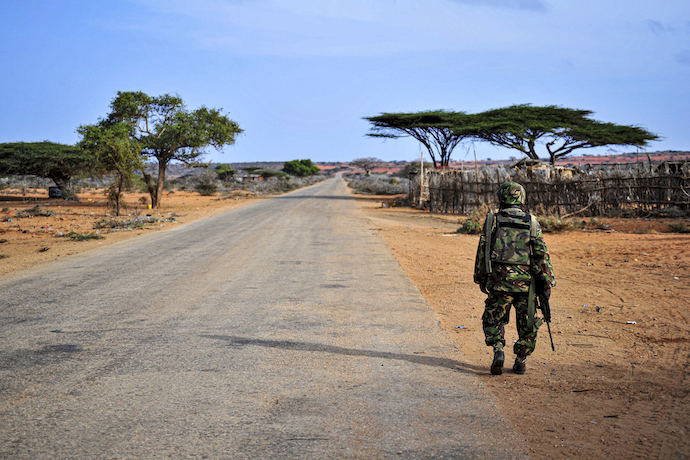
Africans Suffer as Local Security Crumbles Throughout the Continent
Africa is embroiled in a deepening internal security crisis, as the public’s trust in local law enforcement has significantly eroded. The increasing prevalence of security threats has prompted a reluctance among foreign entities to invest in security programs, particularly in countries like Nigeria, where organized crime has become deeply entrenched.
On August 8, 2022, the UN Security Council convened for a two-day open debate in the United Kingdom, aiming to diminish insecurity, halt violence, and foster a peaceful and robust economy throughout Africa. The discourse also highlighted the imperative to bolster investment in localized strategies to effectively tackle the continent’s multifaceted challenges. However, since these discussions, there has been an absence of tangible progress in directly combating insecurity in Nigeria, as evidenced by the continuous onslaught of attacks, notably the tragic loss of 166 lives in northern Nigeria during June and July of this year.

Africa’s persistent mismanagement of security funds cannot be remedied solely through external investment. Without a concerted effort by African governments to prioritize the training and sustenance of internal law enforcement, the continent risks not only the erosion of international confidence but also the further alienation of its own citizens.
Scholars of peacebuilding and conflict studies have observed that the rise in insecurity is more frequently a result of recurring conflicts within countries than the emergence of new issues. The farmer-herder intercommunal conflicts in Nigeria, for example, have been predicated on competition for limited resources since 2011, giving rise to various factions and gangs, including bandits and groups such as Boko Haram, known for orchestrating organized crime, kidnappings, and murder.
Recurring conflicts have now eclipsed the emergence of new violent conflicts seen in the 1990s. Many African nations currently ensnared in armed intra-state conflicts have a history of intermittent instability and violence, punctuated only by fleeting periods of relative peace. Nigerian authorities must therefore urgently revisit socio-political initiatives aimed at grassroots conflicts, addressing the underpinnings of poor governance, corruption, poverty, and economic decline.
Nigeria is grappling with increasing radicalization, organized crime, kidnappings, and a staggering unemployment rate above 30%. The Nigeria Security Tracker documents over 100,000 deaths as of July, including those from the Niger Delta crisis and the horrific massacre of 40 churchgoers in southwest Ondo State. The capital, Abuja, has witnessed numerous attacks by Islamists and other armed factions vying for governmental control, leading to the terrorization of citizens, exemplified by the 23 individuals held hostage in Kaduna since March.
Additionally, the attack on Kuje Prison in Abuja by Wilāyat Garb Ifrīqīyā, or the Islamic State’s West Africa Province, resulted in multiple fatalities and the escape of over 800 inmates. The recent death of Greatness Olorunfemi on September 26, is yet another grim reminder of the dangers that persist.

These incidents represent only a fraction of the atrocities inflicted upon Nigerian citizens in the absence of local police intervention. The underutilization of conventional local security measures exacerbates the continent’s security challenges. A focus on grassroots initiatives and stronger community policing could forge a more robust bond between law enforcement, citizens, and communities, thus restoring trust and paving the path toward a more secure future for all involved.
Many African countries are ill-equipped to tackle the burgeoning security issues due to a deficiency in training and technological advancements. Investments in surveillance technology, such as CCTV cameras, drones, cybersecurity infrastructure, and advanced technology training, could significantly enhance early threat detection and bolster nationally led interventions against the continent’s security vulnerabilities, thereby promoting public safety and well-being.
The African Union has prioritized fortifying security on the continent, with its African Peace and Security Architecture serving as the cornerstone for the development and implementation of African-led peace and security solutions. Yet, the efficacy of these strategies is contingent upon adaptive responses from African leaders, particularly at the local government level.
The international community can amplify its impact by advocating for comprehensive peacebuilding strategies that clearly delineate the roles and responsibilities of various actors at both the national and local levels. Such a strategic shift could render African and international efforts more potent in tackling the structural roots of the continent’s security woes.
The Justice and Security Dialogue implemented by the United States Institute of Peace (USIP) in 12 African nations has begun to show signs of addressing local violence, aiming to reestablish trust and foster collaboration between community leaders, government officials, civic leaders, and citizens to confront underlying security challenges. Nigeria, among 12 other African nations, has embraced this initiative.
Although this marks a positive development, further measures are essential to ensure long-term stability across the continent. To rejuvenate continental security, the Nigerian government must bridge the gaps in local law enforcement capabilities.
